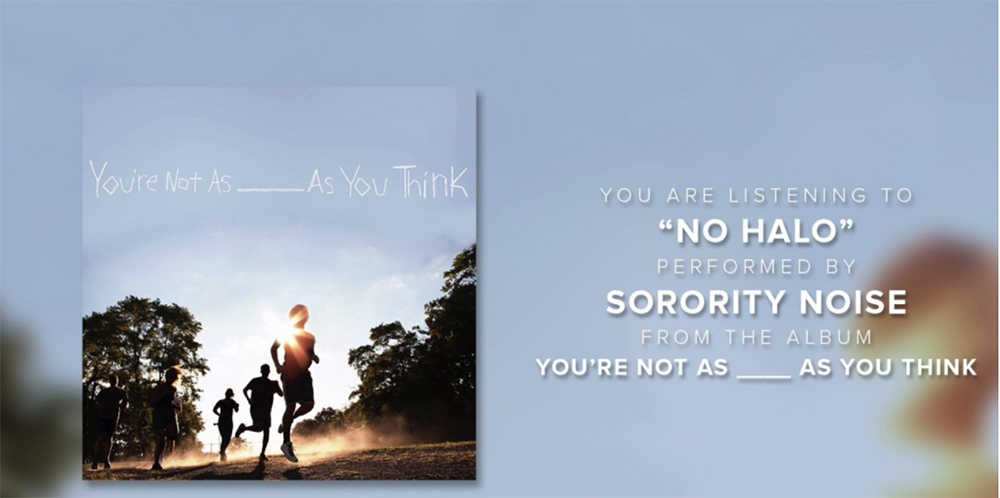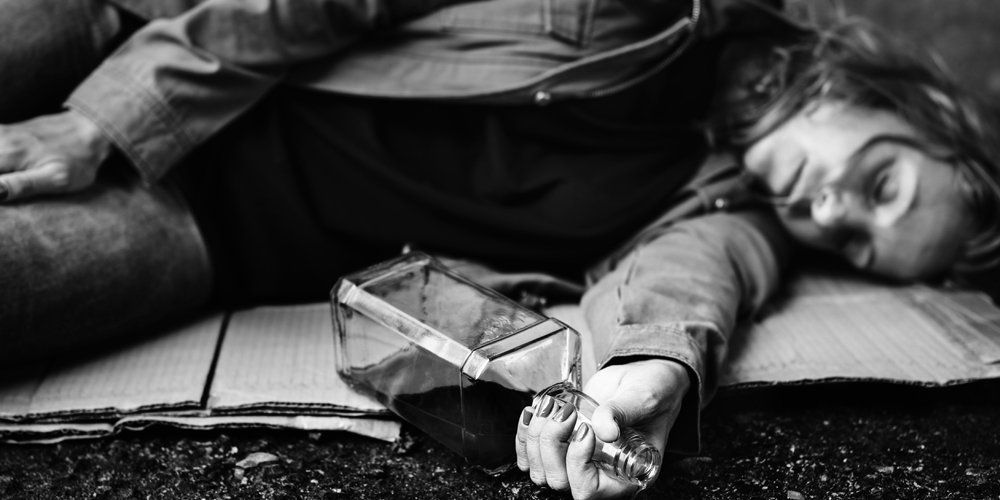Once I started, I couldn’t stop. Words flowed out of me like a dam had been removed from an overflowing river. Seven years later, I’ve filled many journals, become a full-time writer and journalist, published hundreds of articles online, and have begun writing my memoir.
Writing is my number one means of expression — I often choose it over an in-person conversation. Some kind of magic happens when I place my fingers on the keyboard. Writing helps me to connect my mind and body, to ground myself.
It gives me the breathing space to process my thoughts. Writing shows me how far I’ve come, but also what’s left to heal. I can’t imagine a life without writing.
AWP 2019, Portland, OR
As I’ve started to take myself more seriously as a writer, I decided to venture out into the world of my peers. I recently attended an Association of Writers and Writing Programs (AWP) conference in Portland. It is the largest literary conference in North America readings, panel discussions, and lectures.
What struck me the most about the conference was the sheer volume of people—there were 12,000 attendees. If you’re new to the writing world, AWP can leave you feeling a little out of your depth — looking out the lens of comparison as opposed to shining in your own light. For this introvert and empath, it was way too much. I hate crowds, and I struggle to make meaningless chit-chat.
While I found I’m not alone in my feelings of overwhelm and my desire to lock myself in a dark room surrounded only with books and a flashlight for the next month, I did take the opportunity to indulge my curiosity about the emerging cohort of writers who have spoken openly about their recovery.
I wanted to know if it was possible to co-exist in a world that is usually associated with copious amounts of wine, and whether these writers’ pain from addiction could be used as a catalyst for healing in the world.
Writers in Recovery
I spoke to writers Kerry Neville, Randall Horton, Kelly Thompson, and Penny Guisinger to understand their writing process and how it relates to their recovery.
Kerry Neville

Kerry Neville is the author of the books Necessary Lies and Remember to Forget Me. She is the recipient of numerous prizes in fiction, a former Fulbright Scholar, and the coordinator of the graduate and undergraduate creative writing program at Georgia College & State University, where she is also an assistant professor of creative writing.
How has recovery influenced your writing, and in what ways?
When I write out of my own experience, out of my own complicated relationship with bipolar disorder and about my recovering from an eating disorder and alcohol use disorder, for instance, I often navigate between the implicit bias I have that comes out of my own factual experience and the imperative to try to translate that into a more universal felt understanding.
I am interested in how such struggles with these types of disorders might reveal something more about what it means for us to be in connection or disconnection with each other. When I am “inside” my own experience of this illness, it’s isolating — insularity prevents insight.
So in my writing, I try to understand how grief, loneliness, and depression, the tightrope many of us walk regardless of a mental health diagnosis, might link us together and how we can help each other to continue on.
Conversely, in what ways has writing helped your recovery?
In my movement toward recovery and stability and back into my writing self, I understood that while it might be desperately lonely out there, we have an obligation to reach out for each other, to pay attention, to live in truth and integrity.
This understanding, once I emerged from that bleak, dark well, fueled the writing, helped me find my way back through words that built sentences that created paragraphs that imagined stories — and writing is an act of hope.
How do you deal with the ups and downs of being a writer (rejections, etc.) in a healthy way?
In terms of dealing with rejection? One day at a time, one submission at a time. And remembering I write not for acceptance but for connection — to myself, to others.
Randall Horton

Randall Horton is the author of several books: The Definition of Place, Lingua Franca of Ninth Street, Hook, A Memoir and Pitch Dark Anarchy: Poems. He is the recipient of various poetry awards and prizes, including the Gwendolyn Brooks Poetry Award. Randall is a member of the Affrilachian Poets and an associate professor of English at the University of New Haven.
How has recovery influenced your writing, and in what ways?
To be honest with you, I don’t know that it has. However, when I was in JAS (Jail Addiction Services) in Montgomery County, I was introduced to the idea of writing through a group session we used to have with a social worker. This person took an interest in my writing during this time and encouraged me to continue the path that I now currently follow.
Conversely, in what ways has writing helped your recovery?
I will say this: Writing helps me to not want to sell drugs, pick up a package and hustle, or the myriad things I thought were necessary for me to live. For me, writing shows me how to be human; even when I resist, the writing is my equilibrium.
How do you deal with the ups and downs of being a writer (rejections, etc.) in a healthy way?
Well, the first word I learned as a little child was “no.” So rejection doesn’t bother me one bit. I have been to prison. I have lived on the streets and had a whole alternate existence as a human being in this society. With that said, writing and the writing life is easy because I’m playing with house money, so I never lose. Feel me?
Kelly Thompson

Kelly Thompson’s work has been published in Guernica, Entropy, The Rumpus, and various other publications and literary journals. Her essay “Hand Me Down Stories” was nominated for a Pushcart. Kelly curates Voices on Addiction at The Rumpus, where she also serves as a contributor.
How has recovery influenced your writing, and in what ways?
Recovery is a way of life. My recovery determines my writing, relationships, daily life, and choices. I prioritize my sobriety over everything else. It comes first. My recovery is based on certain principles. As Shakespeare said, “To thine own self be true and it must follow, as the night the day, thou canst not then be false to any man.”
So that, as well as other principles like honesty, openness to new ideas, and nonresistance constitute a daily practice in my life. That flows into my writing practice as well. So I really can’t separate the two. For me, it is all one thing. Recovery helped me uncover my truth, which led me to write.
Conversely, in what ways has writing helped your recovery?
To write is my heart’s desire. My passion. By writing, I am doing what I was born to do. Once I peeled away the layers of conditioning that kept me from writing —and there were many — once I committed to writing as a lifelong practice, doors began opening, and any obstacles in the way of my writing began to dissolve.
I have learned that purpose is integral to recovery, so by fulfilling it, by following my passion, so to speak, my recovery is strengthened. They inform each other. My recovery and writing go hand in hand.
How do you deal with the ups and downs of being a writer (rejections, etc.) in a healthy way?
I think it was Barry Lopez who said, “Despair is the great temptation.” I can’t afford to go there. It’s a numbers game, so in the beginning, I started by submitting my writing frequently to publications I admired. I set a goal of getting as many rejections as possible and considering that a win.
The rule I set for myself was that upon receiving a rejection, I would immediately send the piece to the next tier of submissions. By doing that, I was able to transition into not taking rejection personally. I also learned from the process. I learned that I was often sending things out prematurely. I learned to sit on my writing for a bit and then return to it.
Now, as a curator for The Rumpus and “Voices on Addiction,” I’m on the other side of it, as well. That experience has taught me firsthand that rejections often have nothing to do with the quality of the writing. It’s usually more a matter of timing, fit, and the column’s needs.
At the same time, the best submissions are truly final drafts and need little to no edits. That continues to teach me a lot about my writing and submission process. If you can become a reader for a publication, go for it, because you’ll learn from it.
Penny Guisinger

Penny Guisinger is the author of the book Postcards from Here. Her work has appeared in various publications, such as River Teeth, Guernica, the Brevity blog, and Solstice Literary Magazine. She has been nominated for a Pushcart, has won the Maine Literary Award, and was twice named a notable in Best American Essays. She is the assistant editor at Brevity Magazine, the director of Iota: Conference of Short Prose, and the founder of the popular and hilarious blog, My Cranky Recovery.
How has recovery influenced your writing, and in what ways?
I’m a CNF [creative nonfiction] writer, and so am constantly mining real life for writeable moments. Recovery demands that we dig deep into ourselves and develop a clear understanding of our own minds and how they work. As I go through life as a person in recovery, I have learned how to experience the experience of every experience, which is a ridiculous thing to say but it’s true.
I am always taking several steps back to maintain awareness of what’s happening and how it might be impacting my sobriety. As such, it’s honed my self-observation skills which I also use as a writer. And I’d be lying if I didn’t say that recovery makes rich material for writing. (Is that cynical?)
Conversely, in what ways has writing helped your recovery?
Writing has not helped my recovery at all, but publishing about recovery has helped a lot. There is a lot about 12-step programs that I don’t find useful, but one very useful thing that happens at meetings is this thing where we admit our addictions out loud by saying (in my case), “I’m an alcoholic.”
Saying those words helped make it real for me. Publishing this particular truth is like saying that to the whole world. It’s terrifying and, ultimately, very freeing.
How do you deal with the ups and downs of being a writer (rejections, etc.) in a healthy way?
I take the little downs in stride: rejection is part of the job, and usually it doesn’t bother me. (There are some significant exceptions: a few that I’ve taken pretty hard!) I get more weighed down by the big ones: imposter syndrome, comparing myself to other writers, feeling let down after this-or-that publication didn’t manage to transform my life.
I manage that exactly the way I manage my recovery: through community. I would be as dead in the water without my writing community as I would be without my recovery community, and what a gift it is when those two communities overlap.
By Olivia Pennelle 05/16/19

















